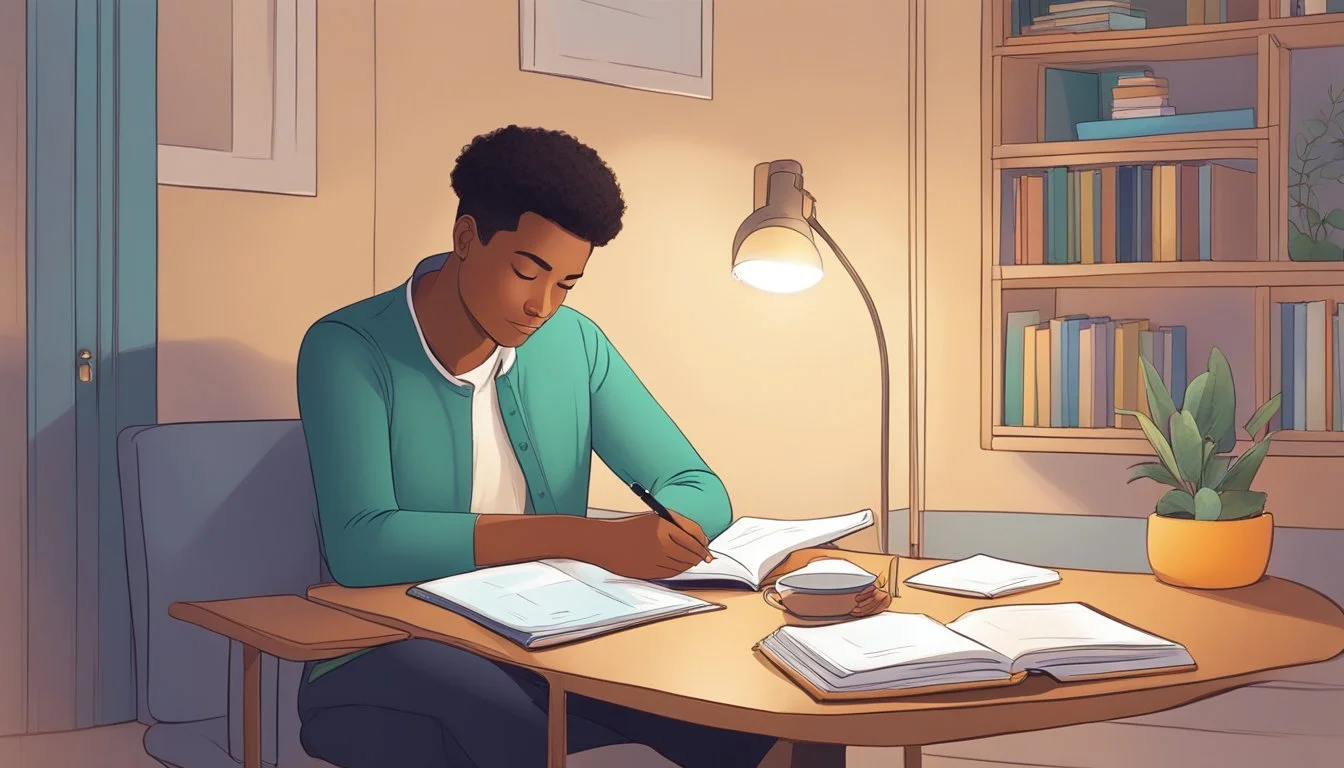9 Strategies for Handling Criticism Constructively with BPD
Improving Emotional Resilience
Criticism can be challenging for anyone to handle, but for individuals with Borderline Personality Disorder (BPD), it often presents unique difficulties. People with BPD may experience intense emotional reactions to feedback, which can strain relationships and self-esteem. Learning effective strategies to manage criticism constructively is essential for those living with BPD to improve their quality of life and interpersonal interactions.
This article explores nine practical approaches for individuals with BPD to handle criticism in a healthy manner. These strategies aim to help readers develop resilience, maintain emotional balance, and foster more positive relationships. By implementing these techniques, those with BPD can work towards reducing the impact of criticism on their well-being and build stronger connections with others.
1) Listen actively without interrupting
Active listening is a crucial skill for individuals with Borderline Personality Disorder (BPD) when receiving criticism. It involves fully focusing on the speaker and their message without interjecting personal thoughts or reactions.
To practice active listening, maintain eye contact with the person providing feedback. This shows engagement and respect for their perspective. Avoid the urge to interrupt or defend oneself, even if disagreement arises.
Nodding or using brief verbal cues can demonstrate attentiveness without derailing the speaker's train of thought. These small acknowledgments encourage the critic to express their points fully.
Listening without interruption allows for a complete understanding of the criticism being offered. It provides an opportunity to gather all relevant information before formulating a response.
For those with BPD, this approach can help manage emotional reactions that might otherwise escalate the situation. By focusing on listening, individuals create space to process their feelings and respond more constructively.
2) Pause before responding to absorb feedback
When receiving criticism, individuals with BPD can benefit from taking a moment to pause and absorb the feedback. This brief pause allows the brain to process the information more effectively, reducing impulsive reactions.
During this pause, deep breaths can help calm the nervous system and regulate emotions. This creates space for a more measured response rather than an immediate defensive reaction.
Pausing also provides an opportunity to listen fully to the criticism without interrupting. This demonstrates respect for the person providing feedback and ensures all points are heard.
Taking a moment to reflect on the feedback can lead to better understanding of its intent and content. It allows time to consider the perspective of the person giving the criticism.
This strategy helps separate emotional reactions from the actual content of the feedback. It enables a more objective evaluation of the criticism's validity and potential usefulness.
3) Acknowledge valid points to show understanding
When receiving criticism, individuals with BPD can benefit from acknowledging valid points made by the critic. This demonstrates a willingness to listen and understand the other person's perspective.
Recognizing legitimate concerns shows maturity and openness to growth. It can help defuse tension and create a more constructive dialogue between both parties.
By validating the critic's observations, those with BPD can build trust and rapport. This approach fosters an environment where feedback is seen as an opportunity for improvement rather than a personal attack.
Acknowledging valid points doesn't mean agreeing with everything said. It simply involves recognizing aspects of the criticism that may have merit or truth to them.
This strategy can help individuals with BPD separate their emotional reactions from the content of the feedback. It allows for a more balanced and objective assessment of the criticism received.
4) Ask for specifics to clarify unclear criticism
When receiving vague or ambiguous criticism, it's crucial to seek clarification. This strategy helps individuals with BPD understand the feedback more accurately and respond appropriately.
Requesting specific examples or details allows for a clearer picture of the issue at hand. It demonstrates a willingness to engage constructively and shows genuine interest in improvement.
By asking for clarification, people with BPD can avoid misinterpreting the criticism or jumping to conclusions based on incomplete information. This approach helps reduce emotional reactivity and promotes more rational responses.
Effective questions to ask include: "Can you provide an example of when this occurred?" or "What specific aspects would you like to see improved?" These inquiries encourage the critic to offer concrete, actionable feedback.
Seeking specifics also shifts the conversation from potentially triggering generalizations to more objective, factual discussions. This can help individuals with BPD maintain emotional stability while addressing the criticism constructively.
5) Maintain a calm tone to encourage constructive dialogue
A calm tone is essential when handling criticism with BPD. By keeping one's voice steady and avoiding emotional outbursts, individuals create an environment conducive to productive conversations.
Maintaining composure signals a willingness to listen and engage respectfully. This approach can help defuse tension and encourage the critic to express their concerns more openly and constructively.
Practice deep breathing or other grounding techniques to stay centered during difficult exchanges. Focus on speaking slowly and deliberately, which can help regulate emotions and promote clearer thinking.
Choose words carefully, avoiding accusatory language or defensive responses. Instead, use neutral phrases that demonstrate openness to feedback and a desire for mutual understanding.
Remember that a calm demeanor does not equate to agreeing with all criticism. It simply provides a foundation for more balanced and productive discussions, allowing both parties to explore concerns and potential solutions collaboratively.
6) Reflect on criticism to identify growth areas
Reflection is a powerful tool for personal development, especially when dealing with criticism. For individuals with Borderline Personality Disorder (BPD), this process can be particularly beneficial.
Taking time to carefully consider feedback allows for a more objective evaluation of its validity. It's important to separate emotional reactions from the actual content of the criticism.
Identifying patterns in feedback received over time can reveal recurring themes or areas that may need attention. This self-awareness is crucial for ongoing growth and improvement.
Writing down specific points of criticism and potential action steps can help organize thoughts and create a clear path forward. This process transforms criticism from a perceived threat into a constructive roadmap.
Seeking input from trusted friends or professionals can provide additional perspectives and insights. They may offer alternative interpretations or suggestions for addressing areas of concern.
Setting realistic goals based on reflections from criticism promotes tangible progress. These goals should be specific, measurable, and aligned with personal values and aspirations.
7) Set boundaries to manage emotional impact
Setting clear boundaries is essential for individuals with BPD when handling criticism. Boundaries help create a sense of safety and control over emotional responses.
Establishing limits on the frequency and manner of feedback can prevent overwhelming emotions. Individuals may request that criticism be delivered in a specific format, such as written notes rather than face-to-face conversations.
Time boundaries are also important. Scheduling dedicated times for feedback discussions allows for mental preparation and reduces unexpected emotional triggers.
It's crucial to communicate these boundaries assertively to others. Explaining personal limits and preferences helps create a supportive environment for receiving criticism.
Physical boundaries can be helpful too. Choosing a neutral location for feedback sessions or maintaining personal space during discussions can provide a sense of security.
Emotional boundaries involve recognizing and communicating when criticism becomes too intense. Learning to pause conversations when emotions escalate is a valuable skill.
By implementing these boundary-setting strategies, individuals with BPD can better manage the emotional impact of criticism and engage in more constructive feedback experiences.
8) Practice mindfulness to stay grounded
Mindfulness techniques can help individuals with BPD remain centered when facing criticism. By focusing on the present moment, people can reduce emotional reactivity and enhance self-awareness.
Deep breathing exercises are an effective way to calm the nervous system. Taking slow, deliberate breaths can help regulate emotions and provide a sense of control during challenging interactions.
Meditation practices cultivate awareness of thoughts and feelings without judgment. This allows those with BPD to observe criticism more objectively, rather than immediately absorbing or reacting to it.
Body scan exercises can help ground individuals in their physical sensations. By systematically focusing attention on different parts of the body, people can shift away from intense emotional responses.
Incorporating mindfulness into daily routines can build resilience over time. Regular practice strengthens the ability to stay present and respond thoughtfully to criticism, rather than reacting impulsively.
9) Express appreciation for constructive feedback
Individuals with BPD can benefit from expressing gratitude for constructive feedback. This approach helps foster positive relationships and encourages others to continue providing helpful input.
When receiving criticism, acknowledging its value demonstrates maturity and a willingness to grow. A simple "thank you" can go a long way in showing appreciation for the time and effort someone has invested in offering feedback.
Expressing appreciation also helps reframe criticism as an opportunity rather than a threat. This shift in perspective can reduce defensive reactions and promote more open communication.
For those with BPD, practicing gratitude for feedback can help build trust with others. It signals a commitment to self-improvement and a recognition of others' insights.
Appreciation can be expressed verbally or in writing, depending on the situation. The key is to convey sincerity and a genuine understanding of the feedback's potential value.
By consistently showing appreciation for constructive criticism, individuals with BPD can create a more supportive environment for personal growth and improved relationships.
Understanding BPD and Criticism
People with Borderline Personality Disorder (BPD) often experience heightened emotional reactions to criticism. This sensitivity can lead to intense feelings and challenging interpersonal situations.
Emotional Sensitivity in BPD
Individuals with BPD typically have a heightened emotional response to stimuli. This increased sensitivity stems from a combination of genetic factors and past experiences. For those with BPD, even minor criticisms can trigger intense emotional reactions.
These reactions may include:
Sudden mood swings
Overwhelming feelings of shame or worthlessness
Intense anger or sadness
Fear of abandonment
BPD can make it difficult to regulate emotions effectively. As a result, criticism may be perceived as a personal attack rather than constructive feedback.
The Impact of Criticism
Criticism can have a profound effect on individuals with BPD. It often triggers their core fears of rejection and abandonment. When faced with criticism, people with BPD might experience:
Intense emotional pain
Increased self-doubt
Impulsive behaviors to cope with distress
Strained relationships with others
The fear of criticism may lead to avoidance behaviors or perfectionism. These coping mechanisms can further complicate personal and professional relationships. Learning to handle criticism constructively is crucial for managing BPD symptoms and improving overall quality of life.
Developing Constructive Responses
Crafting thoughtful responses to criticism is crucial for individuals with BPD. Effective strategies involve self-reflection and clear communication techniques.
Mindfulness and Self-Reflection
Mindfulness practices can help those with BPD pause and process criticism before reacting. Taking deep breaths and grounding exercises allow time to assess the feedback objectively. Self-reflection involves asking questions like:
Is this criticism valid?
What can I learn from this feedback?
How can I use this information to improve?
Journaling thoughts and emotions after receiving criticism can provide clarity and perspective. This practice helps separate personal worth from the specific behavior being critiqued.
Communication Techniques
Active listening is key when receiving criticism. Maintain eye contact, nod to show understanding, and avoid interrupting. Paraphrasing the feedback ensures accurate comprehension:
"I hear you saying that..."
Use "I" statements to express feelings without blaming:
"I feel frustrated when..."
Ask for specific examples to better understand the critique:
"Can you give me an instance where this occurred?"
Express appreciation for constructive feedback:
"Thank you for bringing this to my attention."
These techniques foster productive dialogue and demonstrate a willingness to grow.








